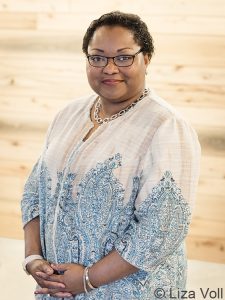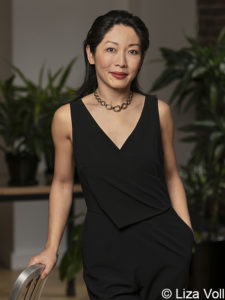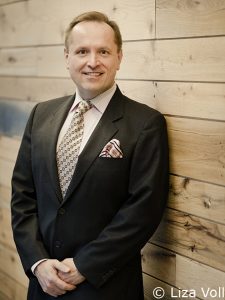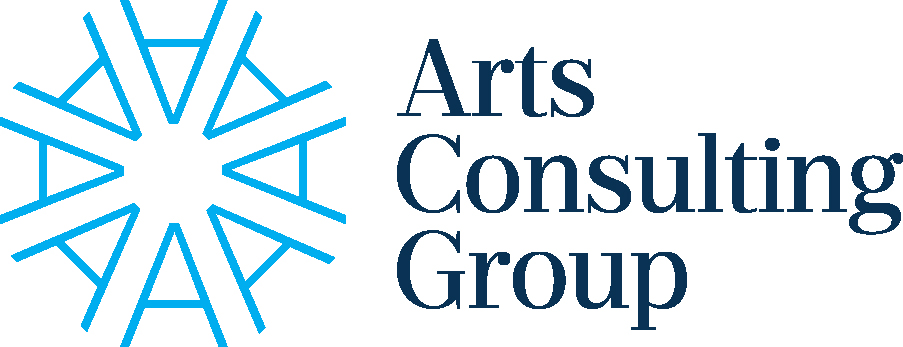The Executive Search Process:
Candidate Considerations during Times of Crisis
Wyona Lynch-McWhite, Senior Vice President
Jane V. Hsu, Associate Vice President
Bruce D. Thibodeau, President
Looking for a new job during times of crisis can be daunting. With an uncertain environment, even highly qualified and experienced candidates may be hesitant to put themselves through a rigorous and evolving executive search process. Early- and mid-career professionals may feel unprepared to address the crisis, yet they have unique insights and can be entrepreneurial in their approach to deconstructing problems. It is during these times of crisis that arts and culture organizations need strong and diverse leadership and a committed team to address financial, programmatic, and contemporary societal issues.
There are several ways candidates can best prepare for the expected and unexpected aspects of an executive search process, starting with thorough organizational research and a review of job opportunities that truly match their skillset and competencies. This issue of Arts Insights, the second in a two-part series, explores candidate considerations that should be evaluated when conducting a job search or participating in an executive search process during a crisis.
Research the Organization
The executive search process is a two-way street. It is not only a chance for the organization to evaluate each candidate as a match for the position’s key responsibilities, but also an opportunity for the candidate to consider the breadth and depth of the organization’s programs and services. It is also critical for candidates to gather information on the organization’s commitment to equity, diversity, and inclusion by carefully reading its public statements as well as researching critiques it has received on social media, community publications, and other outlets. Every organization defines diversity differently—race, culture, socioeconomics, physical ability, gender, geography. It is necessary to understand how the organization defines diversity and serves its community with an equity lens. Is there a demonstrated commitment to diversity within this work or an opportunity to help the organization be more impactful?
In addition, candidates seeking new job opportunities should always thoroughly research the organization’s program and financial history—a step that is even more important during a crisis amidst revisioning business, program, and financial models. There may be new considerations that impact a candidate’s decision to leave their current position, which should be deliberated prior to submitting application materials. At the same time, crises can create great opportunities for learning and professional growth.
Candidates should stay informed throughout the search process to ensure success if presented with an offer of employment. An understanding of the overall compensation package, including insights into employee policies, commitment to pay equity, and details on employee benefits, will be extremely important. This is often seen as the culmination of the search process when in fact it is a separate step. All nonprofits are required to share key salary data as part of their public reporting. Industry salary surveys provide validated information on actual salary ranges in various disciplines, regions, and organizational budget sizes. While the salary range for a position may not be included in all job postings or may change due to extenuating circumstances of a crisis, candidates should confirm the approximate range at the beginning of the search process and ask questions as they move forward.
The research that has been done and the knowledge gained throughout the interview process, such as conversations with the board and senior leadership team, will help a candidate make a more informed decision. Speaking to current and past employees of the organization is an extra step that candidates can take to ensure that the organizational culture and commitment to its employees and its community resonate with the candidate.
Evaluate the Position
Especially in times of crisis, candidates seeking new job opportunities should carefully evaluate both the short-term and long-term scope of a position. During a crisis that impacts broader sections of the economy, candidates should avoid the temptation to apply for jobs that normally would not be of interest, as professional satisfaction typically goes beyond the job itself. Instead, self-evaluate professional goals and spend valuable time applying for attractive positions and appealing organizations that are likely to result in a positive outcome. It is essential that a candidate honestly assess their skills and experience to gage how that matches up with the roles, responsibilities, and qualifications of the position. Research on hiring bias found that men apply for jobs where they meet, on average, 60 percent of the desired qualifications, whereas women apply only when they meet 100 percent of the qualifications.[1] All candidates should be critical in their self-assessment by honestly speaking to areas of growth and articulating how existing skills are transferrable and applicable to new opportunities.
Candidates should be selective in their approach. After researching the organization thoroughly, candidates should prepare application materials that clearly indicate why both the position and organization appeal to them. When seeking more than one new opportunity at a time, it is essential not to use generic application materials that show a lack of interest in a specific role. Additionally, while social media can be a helpful tool to keep abreast of new opportunities, it should not be used in an attempt to circumvent the stated application process. A candidate’s public presence and brand on social media can be seen as part of the application process and should reflect the same professionalism and personality as their cover letter and resume.
Address the Crisis and Articulate Past Results
Candidates should directly address the crisis in their application materials by highlighting their innovation, agility, and technological skills. Utilizing their initial research, candidates should demonstrate an understanding of the organization’s current state and use their cover letter and resume to show adaptability during past crises. The resume should focus on previous accomplishments rather than only past responsibilities. As important as it is for candidates to briefly state what they did in a previous job, it is even more critical to articulate how a department or organization improved due to their tenure—highlighting both qualitative and quantitative results.
Prepare for Technological Requirements
While telephone and virtual interviews are a normal part of a comprehensive search process, they are even more important during times of crisis when meeting in-person is often not an option. Therefore, it is crucial to be prepared for the technical requirements of an interview process. Candidates should start by finding a quiet space with a strong internet connection or phone reception, avoiding areas with disruptive background noise. For video interviews, it is best to set up proper staging with good front lighting, a complimentary background, and a flattering viewing angle. This allows interviewers to focus solely on the candidate and the conversation.
Technology is wonderful when it works correctly but incredibly frustrating when it does not. Candidates should be prepared with backup options. Agility and professionalism when dealing with these technological challenges will make an impact on the interviewers.
Demonstrate Flexibility
It is important to remain flexible to the many unexpected challenges that can occur when participating in an executive search process during a crisis. Because of the ambiguous nature of a crisis, the search process will likely have different steps and pacing. Various stages may be accelerated or postponed, so candidates should be as flexible as possible and remain calm under less than ideal circumstances. Although delays can be extremely frustrating, they should not be reflected back to the organization in verbal or written communication. Communicating promptly and transparently when notified of changes will help the executive search process flow efficiently. Everyone must be kinder and more understanding during crises, as people in all corners of society are dealing with tremendous pressures, uncertainties, family tragedies, and emotional challenges.
Conclusion
Conducting an executive search during a crisis can be overwhelming to both the organization seeking to fill the position and to a candidate seeking the right opportunity. However, it is possible for candidates to find the right position that aligns with their skills and strengths while supporting organizational recovery. Organizations can move forward with a plan that addresses both short-term needs and long-term goals as they lay a path to a sustainable future. Crises such as global pandemics, economic crashes, social unrest, and natural disasters call for a supportive team and inspiring, visionary, and skilled leadership. A strong candidate should embrace the evolving search process and present their experience, education, and accomplishments as the right ones to help an arts and culture organization emerge from a crisis stronger than ever.
[1] Nancy F. Clark, “Act Now To Shrink The Confidence Gap,” Forbes, April 28, 2014, https://www.forbes.com/sites/womensmedia/2014/04/28/act-now-to-shrink-the-confidence-gap/#7467c0515c41.

Wyona Lynch-McWhite, Senior Vice President
Wyona Lynch-McWhite joined ACG in 2016, bringing more than 21 years of experience leading art, university, and multidisciplinary museums. Her areas of expertise include executive search, museum planning, organizational assessments, strategic visioning, fundraising, and diversity training. As an Executive Search practice leader, she has led numerous search processes throughout the United States and Canada, placing executive leaders for a wide range of nonprofit organizations, universities, and government agencies. Ms. Lynch-McWhite has also provided effective solutions in the areas of earned revenue enhancement, strategic planning, and museum planning for clients such as Collier County Museum Division, High Desert Museum, and Civil Rights Institute of Inland Southern California. Prior to joining ACG, she served as the Executive Director of the Fruitlands Museum and Fuller Craft Museum. Ms. Lynch-McWhite was previously a Director-at-Large and Program Committee Co-Chair on the South Eastern Museums Conference governing council and has served as a National Grant Reviewer for the National Endowment for the Arts and the Institute of Museum and Library Services. A 2006 participant in the Getty Center’s Museum Leadership Institute, she currently serves as the Leadership and Management Network Chairperson of the American Alliance of Museums and as a board member of the New England Museum Association. Ms. Lynch-McWhite graduated Magna Cum Laude with a bachelor of science degree from Florida A&M University and holds a master of fine arts degree from Columbia College, Chicago.

Jane V. Hsu, Associate Vice President
Bringing 20 years of experience in museum and nonprofit arts organization leadership, Associate Vice President Jane V. Hsu is committed to public and cultural engagement and driven by innovation and deep levels of active participation. Her areas of expertise include project management, strategic community partnerships, integrated artist engagement, employee mentoring and evaluation, and equity, diversity, and inclusion education. Prior to joining ACG, she served as the Head of Engagement at the Rubin Museum of Art, where she managed creative and communication teams to produce compelling and unforgettable contemporary art experiences accessible for all ages and diverse audiences. She also reinvented museum-wide, high-impact engagement strategies by integrating contemporary art environments with an Asian art museum. As the Manager of Interpretation at the New Museum of Contemporary Art, she was a key champion for community outreach activities when the museum launched its groundbreaking building in the historical Lower East Side neighborhood. Additionally, she established accessibility and inclusion practices with programming that reinvented museum spaces for greater engagement with diverse and multigenerational audiences. An expert in contemporary art and documentary film practice, she is a curator of Chinese documentary films focused on issues of gender, sexuality, and domestic violence. She serves as adjunct faculty at New York University, Columbia University, The City University of New York, and Metropolitan College of New York, teaching courses in arts administration, art history, and film theory. Ms. Hsu holds a bachelor of fine arts in design and video from The Cooper Union School of Art in New York, a master of business administration in media management from Metropolitan College of New York, and a master of arts in film and East Asian studies from Columbia University School of the Arts.

Bruce D. Thibodeau, President
Dr. Bruce D. Thibodeau founded ACG in 1997 and has guided hundreds of nonprofit, university, and government clients in achieving effective leadership transitions, planning cultural facilities, increasing revenues, developing dynamic institutional brands and messages, crafting strategic plans and business models, and revitalizing board governance practices. He has also conducted extensive research in a threefold exploration of stakeholders, nonprofit arts management, and cultural facility project management and has facilitated numerous community engagement processes that have increased the public dialogue and stakeholder awareness of the arts and culture sector’s value and impact on communities. As both a researcher and practitioner, his expertise highlights the important roles of project champions and followers as they overcome inertia and gain momentum derived from their social connections, personal commitments, and financial capacities to support the arts and culture sector. Prior to founding ACG, Dr. Thibodeau held various management roles at the Los Angeles Chamber Orchestra, Boston Symphony Orchestra, Hartford Symphony Orchestra, Santa Fe Chamber Music Festival, Price Waterhouse, and Museum of Contemporary Art Los Angeles. He is a regular guest speaker at national and international arts, culture, and academic conferences and has several published papers. Dr. Thibodeau holds a doctorate of business administration from the Grenoble Ecole de Management (France), a master of business administration from the F.W. Olin Graduate School of Business at Babson College, and a bachelor of music from The Hartt School at the University of Hartford. He also has multiple certifications in competencies, communications, and motivations analysis from Target Training International.
Contact ACG for more information on how we can help your organization embrace an
inclusive executive search process focused on diverse, equity, and accessibility.
(888) 234.4236
info@ArtsConsulting.com
ArtsConsulting.com
Click here for the downloadable PDF.
